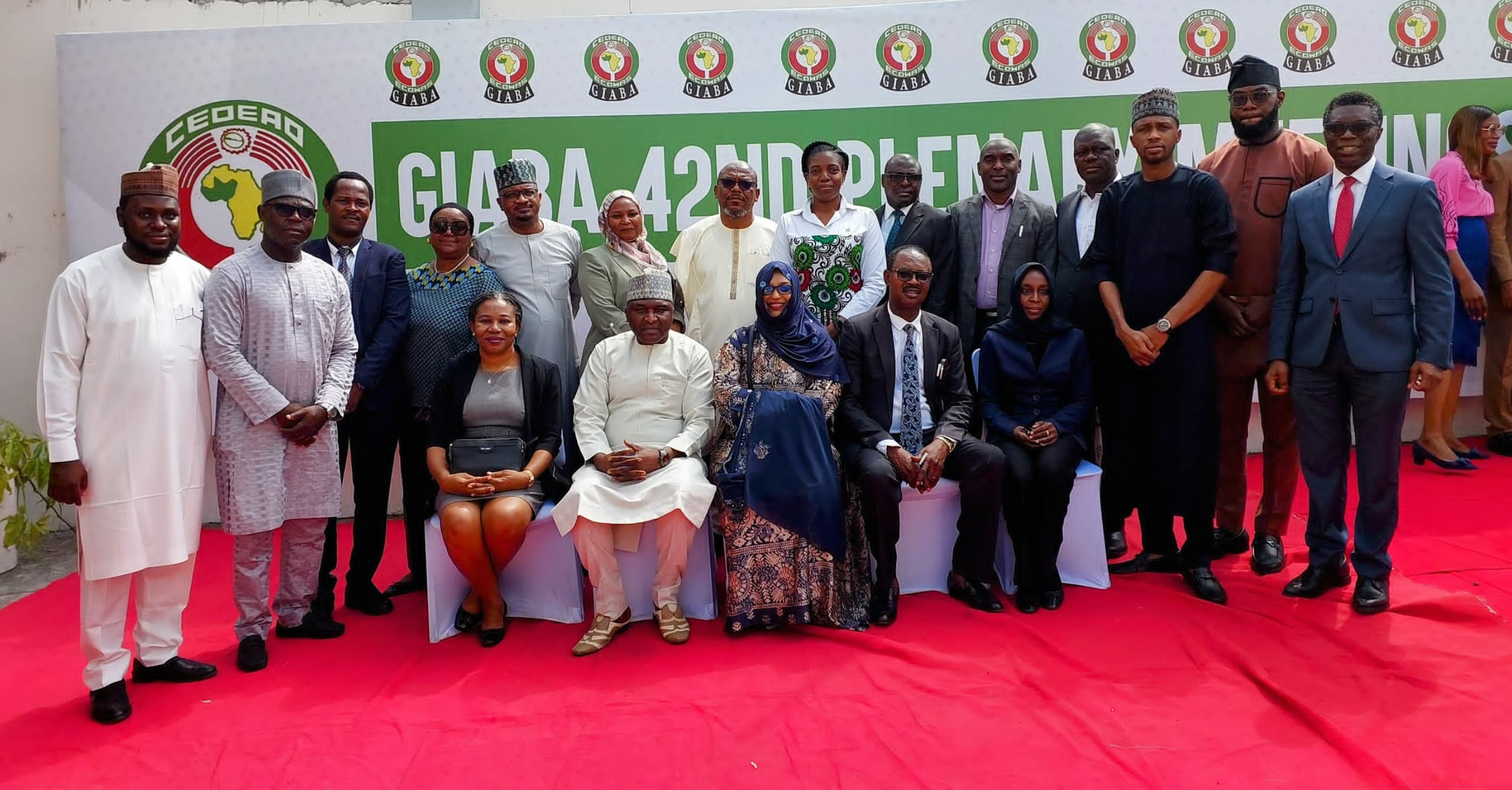Lagos state has been in the forefront of technology deployment for both public and private services. In this interview, the Technical Adviser, Lagos State Safety Commission and Co-founder at the Nest Technology Innovation Park, Seun Awojobi, speaks with JUSTUS ADEJUMOH on a number of issues, including steps being taken by Lagos state government to accelerate services through technology and ensure the safety of database feeds. Excerpts:
How would you describe ICT growth in Nigeria?
ICT growth in Nigeria has been tremendous and the current Minister of Communications, Innovation and Digital Economy, Dr. Bosun Tijani, is also driving the growth in unique ways.
He’s bringing everybody to the room, from the academia, to the operators, to the lawmakers, to see what part of the laws that could be changed.
He’s meeting with academia to see what kind of policy focus we should have as a nation.
Again, if the regulation is right, there will be a better, bigger and stronger growth. I say this because the unicorns that have been produced from Nigeria’s tech space, are largely fintechs, playing in the financial technology space and this is because the financial sector is heavily regulated. So because of this, regulation has driven that growth. But look at other tech sectors that do not have as much regulation, like the agri-tech, where many of them have failed.
We have the people, we have the population, and we have the market size, but regulation is key because it will drive growth.
How is your Commission using technology to drive what you do for the safety of mankind?
Technology is driving a lot of our processes. We got into office in 2019. At the time, we didn’t have a database of the organisations that we were meant to regulate.
COVID-19 for us, was a game-changer because we realised that we didn’t have an extensive database.
At the time, we all remember, all businesses were shut. So, under the leadership of the Government of Lagos, it was seen as the best time to address this gap.
Before any of these businesses reopened, particularly those within the event and hospitality space (bars, lounges, hotels, event venues, gyms, clubs, and all social centres in Lagos), we set up a database.
Today, if you go on LASG Safety Reg, we have over 15,000 registered businesses. These businesses are not just registered; we have their names, addresses, locations, and photos. We verify these businesses.
This helps us to easily locate spaces and identify responsible parties in the event of any mishap or safety breach. Even documentation, like safety management systems, is submitted through this platform. The numbers have been growing daily.
Technology has made it easier for us to capture all sectors, making regulatory oversight straightforward. For instance, if there’s an issue at a hotel, we can go to the database, look for the phone number, and contact the person in charge to address the issue.
This has significantly streamlined our processes. Also, we’re using technology to issue event permits.
Now, all of this process was driven largely by our ability to digitise our operation. What would naturally take you a two-day trip to come to Alausa and do all of that and go back and come again has been cut out.
People are naturally averse to change. What have been the responses from the people in terms of accepting the change from analogue to digital?
Before now, a lot of people did not want the change to digital, but that is where the world is heading to and we had to insist on digital transformation for the state.
Today, government activities are online and could be accessed online by the citizens, a development that has eased congestion of people trying to find their ways to government offices to carryout government transactions.
The time they spend commuting between their various locations and the government secretariat has been minimized because people can now access all government activities online.
With digitization of government activities, one thing is clear about the response time, which has become a lot easier.
Lagos population is fast growing and we believe that we cannot keep getting everybody into one space. So if we’re able to drive one digital adoption, what happens is, first we see that our revenue as a state will go up because you’ve cut all those bottlenecks in accessing government services. So, I can say for free that a lot of government agencies are digitizing their processes.
What is Nest all about?
Nest is an entrepreneurial support organisation. We help foster and support business innovation, create partnerships, and ensure that entrepreneurs scale. We do this in several ways.
We understand that we are in an ever-changing environment, and the future for me, for Nigeria, will be powered by SMEs.
So, for us, how do we ensure that these SMEs can stand the test of time? How do we ensure that these SMEs can cater for the business that they say they’re going to cater for? We offer a range of support services, collaboration, business support, training, skills development, mentorship, and provide an accelerator for new or existing businesses to come in and then scale.
We are also a technology hub and cater to a number of start-ups.
Many start-ups come through our space and access a lot of our services because we offer a wide range of services to them.
How does 3MTT affect ICT in Nigeria, and is Nest part of the partners?
Yes, Nest is one of the partners of the 3MTT (3 Million Technical Talents). I must say that the Minister for Innovation and Digital Economy is doing a fantastic job.
His vision is to ensure that Nigeria is an export of technical talent, similar to what we’ve seen happening in India. If you go to several countries around the world, you’ll see that there are a lot of Indians in their tech space. Now, for the Minister, that is also his target. We have a growing population of youth, and for him, it’s about how we can turn that into a strength by ensuring we train at least 3 million people in technical talent.
Yes, Nest is a part of it. I believe that if and when we reach a milestone in this training, we will be setting ourselves up for a future of opportunity for our teeming youths where they won’t even have to travel. That’s the power of technology.
We already see it happening. A lot of people are doing remote work, and internet penetration is at an all-time high. If you train them and they can upskill, we will see a lot more remote working. People will cater to and answer businesses all around the world—India, Ireland, the UK, the United States, and other countries—where some of this tech talent can start to first practice, do their business, and even have gainful employment where they earn a decent living.
What is special about Yaba springing up many tech hubs?
We like to call Yaba “Yabacon Valley,” similar to Silicon Valley in San Francisco.
A lot of credit should be given to CCHub, which started the trend, and everyone has rallied around Yaba.
Many of the big start-ups in Nigeria today started in Yaba. It’s also the power of networking, with everyone trying to support the space.
The tech space in Nigeria has evolved greatly, from everyone just trying their hand to having a lot of policy focus and regulation. The startup bill has been passed into law, and many advancements are happening around data protection.
Yaba has become the centre where everyone has gravitated. Many tech founders, including our minister, started CCHub. We are taking that lead and coming together to be a driving force and push the narrative forward.
What is Nest doing to bridge the gap for women in the tech space?
We have a programme called Girl Code. The Girl Code programme is designed for young ladies interested in a career within the tech space.
The Girl Code Academy has produced over a thousand graduates over the years. These are people who had no prior tech skills. They come for three to six months of intensive training in programming languages and coding.
Many of our graduates have secured decent jobs at Google, Amazon, and various tech organisations around the world, not just in Nigeria.
These are individuals who started with zero knowledge of tech or coding, and within three to six months, we’ve been able to achieve great results.
Some of them come from commercial fields and have never had any training. They attend weekend classes on Saturdays and Sundays, where we teach and train them intensively. They have done exceptionally well.
I believe that many of them have received promising job offers, some have started their businesses, and others are using technology to enhance their current employment.
Since 2020 till date, there has been a significant decline in the funding of tech startups. What could be responsible for this development?
It is true that the funding for startups has dropped in recent years, but that’s because it’s a global phenomenon. Now, what do we need to do? We need to look at our SMEs and ensure that we scale these SMEs to a point, because there are lots of opportunities for SMEs that can scale their business.
There are huge opportunities in motion graphics, animations, voiceover in the creative sector, programming languages, in coding, among others.
So part of what Nest Technology Innovation Hub does, is to partner with a lot of organisations like the World Intellectual Property Organization (WIPO), among others, to offer training sessions to Nigerian SMES and startups.
We’re partnering with 54 collectives, some accelerators that we have identified different opportunities that they can tap into. The creative economy, for instance, is very huge. We see how much money comes from the film and movie industry. Now, all of these things are soft skills that should be learned.

 2 hours ago
8
2 hours ago
8














